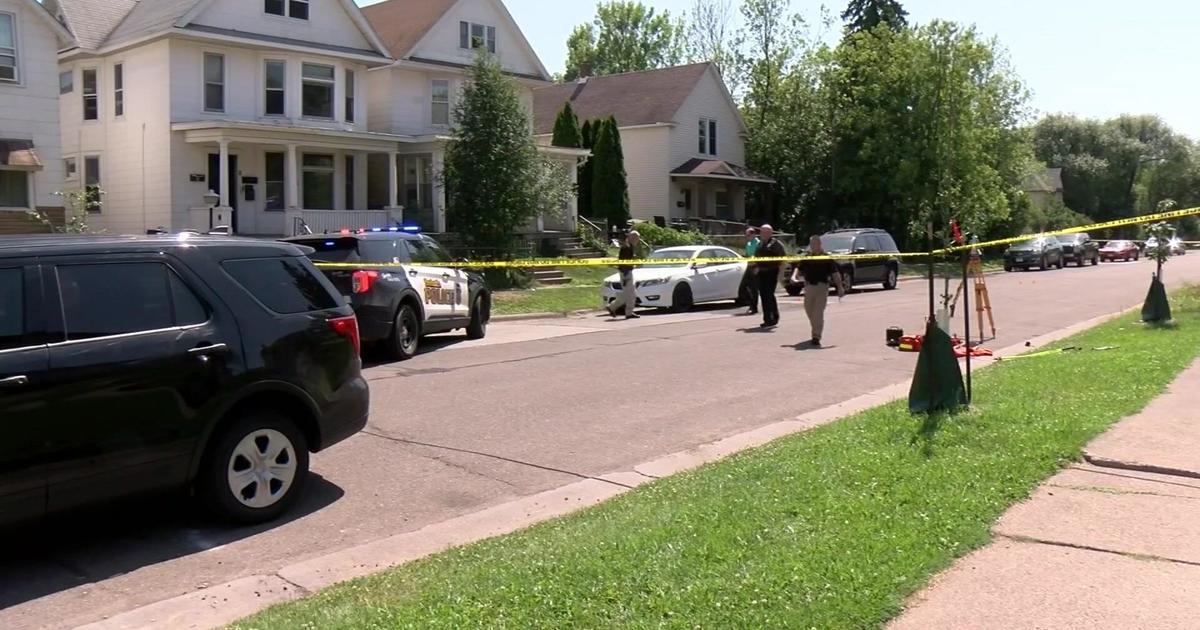Minn. Charges Tossed Against Right-To-Die Ex-Head
HASTINGS, Minn. (AP) —A Minnesota judge on Friday dismissed charges against the former head of a national right-to-die group accused in the death of an Apple Valley woman, saying Minnesota's law against advising suicide is unconstitutionally overbroad.
In a late-afternoon ruling, Dakota County Judge Karen Aspahug dismissed charges against Thomas Goodwin, former president of Final Exit Network. Goodwin was charged with aiding and abetting assistance of a suicide, a felony, and aiding and abetting in the interference with a death scene, a gross misdemeanor.
Goodwin and three other members of Final Exit Network were charged last year in the 2007 death of Doreen Dunn, who killed herself in her home. Prosecutors said the defendants not only supported Dunn's decision to kill herself, but provided Dunn with information and support to follow through.
Final Exit members claim they do not encourage suicide, but that the act of giving information and emotional support could be interpreted as "encouraging" under a Minnesota law that makes it a felony for someone to intentionally assist, advise or encourage suicide.
Defense attorneys for the Final Exit members say Minnesota's law is unconstitutional. In court documents, Final Exit Network general counsel Robert Rivas wrote that while the state may bar someone from "assisting" a suicide, it is unconstitutional for the state to ban "advising" or "encouraging" a suicide — pure speech.
Prosecutors contend the statute is narrowly worded so advocates of suicide may freely speak their minds but that those who "intentionally" assist, encourage or advise suicide are breaking the law.
In Goodwin's case, Asphaug ruled that the "advising" portion of the state law was overbroad and therefore unconstitutional, while "encouraging" can be narrowly construed and passes constitutional muster.
Defendants asked that if Asphaug refused to dismiss the charges, that she give them permission to appeal.
The 17-count indictment charges Final Exit Network, its former medical director Lawrence Egbert, 85, of Baltimore, and three other officials with felony counts of assisting suicide and interference with a death scene, a gross misdemeanor. The others named in the indictment are Jerry Dincin, 82, of Highland Park, Ill., Roberta Massey, 67, of Bear, Del., and Goodwin, 66, of Punta Gorda, Fla.
The judge dismissed two charges against Massey — assisting in a suicide and aiding and abetting in the interfering of a death scene — but allowed a charge of aiding and abetting others to assist in a suicide to stand. All other remaining charges against the other defendants stand.
Rivas said the group was celebrating Goodwin's court victory.
"It's a clean sweep for (Goodwin). I'm sure he's overjoyed," Rivas said in a telephone interview Friday night. "Everybody in Final Exit Network is jumping for joy because he's the former president."
Prosecutor James Backstrom said in a statement that his office was pleased the judge found probable cause for most of the counts in the indictment against Final Exit Network and several of its members. Backstrom said his office is reviewing the judge's ruling on the law's constitutionality to determine how to proceed.
Authorities say Egbert and Dincin went to Minnesota to be with Dunn when she took her life, and likely dumped the equipment she used to kill herself on their way back to the airport. Dunn had suffered through a decade of intense, chronic pain after a medical procedure went wrong.
Prosecutors said it's not against the law to commit suicide, but the assisted-suicide statute is designed to preserve human life, especially the lives of vulnerable people such as Dunn.
Rivas wrote that the statute could be interpreted to make it a crime for "exit guides" to advise people on how to die peacefully and with certainty if they decide to take their lives.
Minnesota's assisted-suicide law is also being challenged in the state Supreme Court. An attorney for a man convicted of going online and encouraging two people to kill themselves is arguing that his client's actions were also protected speech. Attorney Terry Watkins argued in his appeal that William Melchert-Dinkel did not participate in any suicides.
Final Exit Network is run by volunteers who believe that mentally competent adults have a basic human right to end their lives if they suffer from "fatal or irreversible illness or intractable pain" and meet other criteria, according to the group's website.
"We do not encourage anyone to end their life, are opposed to anyone's encouraging another to end his life, do not provide the means to do so, and do not assist in a person's death," the website says.
(© Copyright 2013 The Associated Press. All Rights Reserved. This material may not be published, broadcast, rewritten or redistributed.)



